Gli Umarelli di Spalato
Sometimes men just want to watch other guys work - a photo essay
After almost a decade, the eyesore that has blighted the revitalized Zapadna Obala (western shore/waterfront) of Split’s harbour is finally coming down.
This hotel complex once belonged to a former mayor of this city, one whose businesses went bankrupt, and property developments like this one ending up in receivership. Courts move slowly here, but they do produce results (not always good ones). The site took on a sense of permanence due to the longevity of its limbo, so when I went out for a walk yesterday morning to enjoy the perfect weather, I was taken aback by the demolition that had finally begun.
The boardwalk to the left of the photo above is just out of view, but it is used by many to enjoy the view, to get exercise, or to simply sit in the cafes that populate it next to the very turquoise Adriatic Sea. People are out here all day and all night, especially during tourist season.
I was taking photos of the demolition to share with friends and family, both local and international, because everybody always asks about it due to how much of an eyesore it has become. As I was taking photos and sending them over Whatsapp, I laughed to myself because I noticed the ubiquitous presence of the Umarelli:
………..men of retirement age who spend their time watching construction sites, especially roadworks – stereotypically with hands clasped behind their back and offering unwanted advice to the workers.[1] Its literal meaning is "little man" (also umaréin).[2] The term is employed as lighthearted mockery or self-deprecation.
The word umarell is credited to Bologna-based writer Daniel Masotti who described its meaning as:
“Umarells are people, retired or otherwise, who have very little to do all day and justify their existence by interfering in – or helping with – the existence of others, and by doing so, perhaps, making themselves feel useful. Umarells are everywhere, you just have to notice them. You can find them at a crossroads where there's just been an accident, or in a packed bus arguing with someone who barely jostled them, or in line at the post office, the bank, the land registry office… Be careful, because each of us harbours a bit of umarell spirit within ourselves, you just have to be aware of it.”
Since then, its definition has become much more narrow, specific to the older men watching the activities on construction sites.
My grandfather was one of these. In fact, he was the very definition of an umarell.
When Yugoslav dictator Tito opened up the country’s borders in 1961, Western Germany took the opportunity to import cheap labour from the country to power its Wirtschaftswunder. My grandfather was one of the first people from Yugoslavia to leave for work on the baustelle (construction site) in Western Germany, making his way for Wiesbaden near Frankfurt. He began as an ordinary labourer and worked all over the country, from Mainz to Karlsruhe, Cologne, and all points in between. He eventually became a crane operator, and spent the last almost 20 years of his work life in West Berlin.
Just before he retired in 1993, I went with my mother and brother to visit him and my grandmother in West Berlin. He excitedly took us to the work site he was then stationed at, the one that would end his career as a crane operator. He delighted in the opportunity to show us how easily he climbed the ladder twelve stories up to where the cabin of the crane that he controlled. It looked something like this one:
My grandfather retired to the suburbs of Croatia’s capital, Zagreb, which has been a continuous construction site since he left West Germany. When he was 80, we were told not by our family, but by some cousins nearby how he was brought home one early evening by police after breaking into a construction site and climbing the ladder up the crane. I guess he wanted to relive his glory days one last time.
He never mentioned this to us, but we found it hilarious.
He was very much an umarell in that he would visit construction sites nearby, hold his hands behind his back, offer up suggestions to the workers on site as to how they should be doing their jobs, while telling them how it was done in his day. Irritating pensioner? Or charming old man? I guess it all depended on who was on the receving end of his advice.
Men will literally go to a loud construction site, stand there for hours and watch, give unsolicited advice to the workers there, and tell them how they used to do it back in their day instead of going to therapy……and this is good and right.
The Italians have learned to celebrate these men:
In 2015 in the Adriatic city of Riccione, the city paid 11,000 EUR to pensioners to observe construction work that was taking place there:
Among other things, the senior citizens were to count the number of trucks on the municipal construction sites. Purpose: to control deliveries and prevent theft.
Some are even celebrated and rewarded:
The first award: In 2015, the village of San Lazzaro di Savena (near Bologna) gave its first award to a retired person. The senior Franco Bonini becomes "Umarell of the Year". His prize: a day as a site manager on a municipal building site.
What began as a term of mockery grew into one of endearment. This shows a respect for the elderly, something that is disappearing quickly in many places in the West.




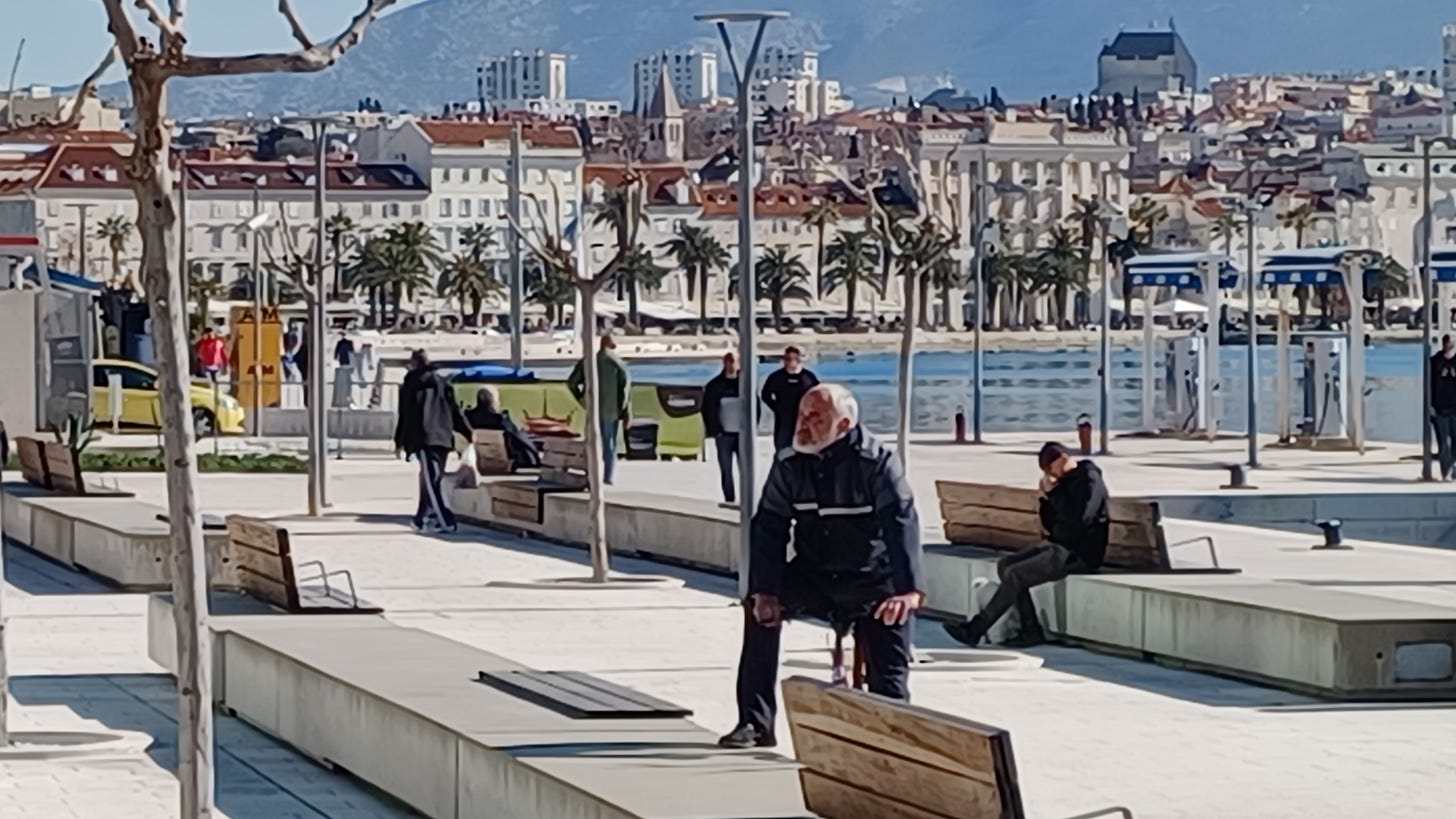
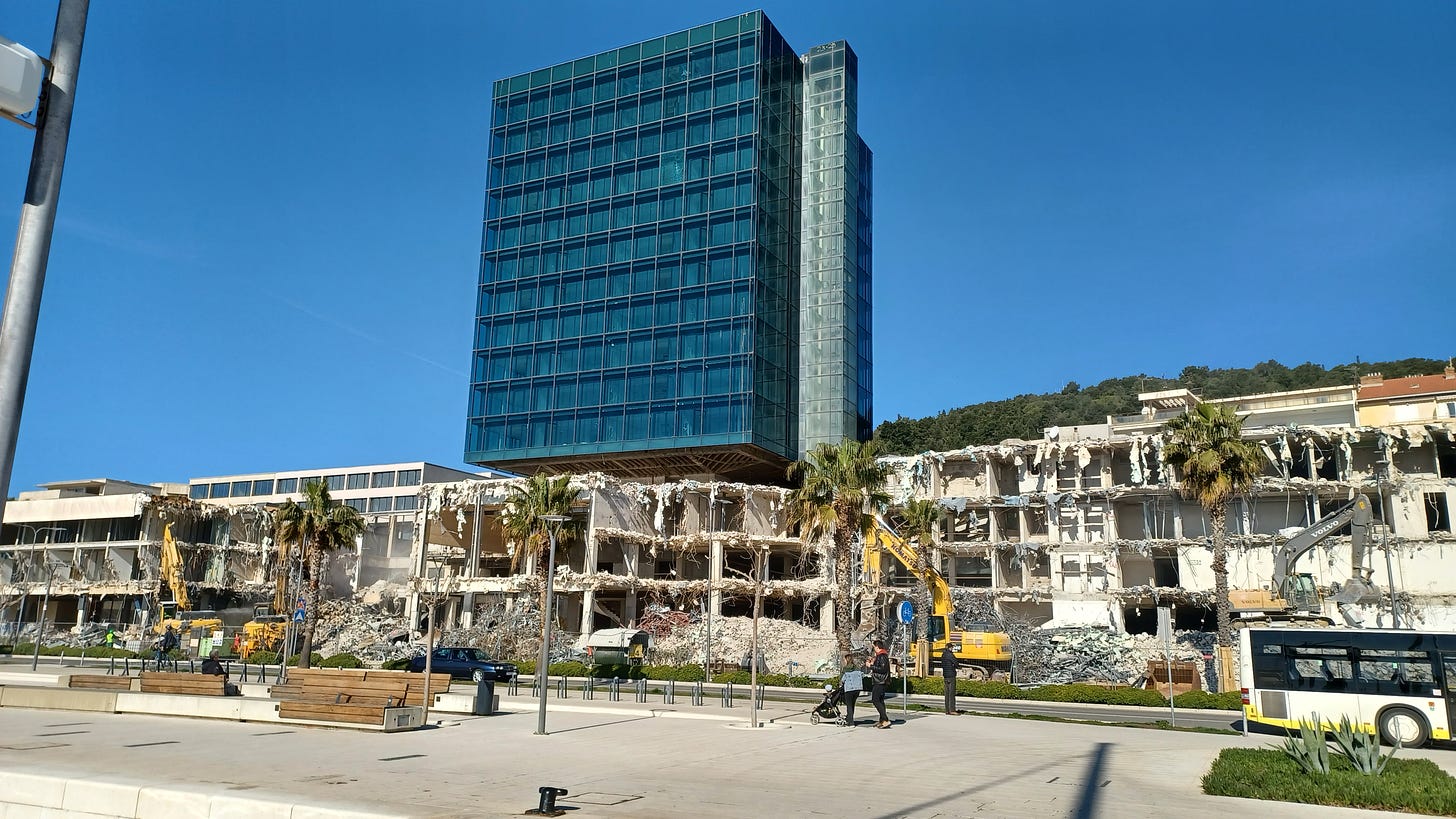
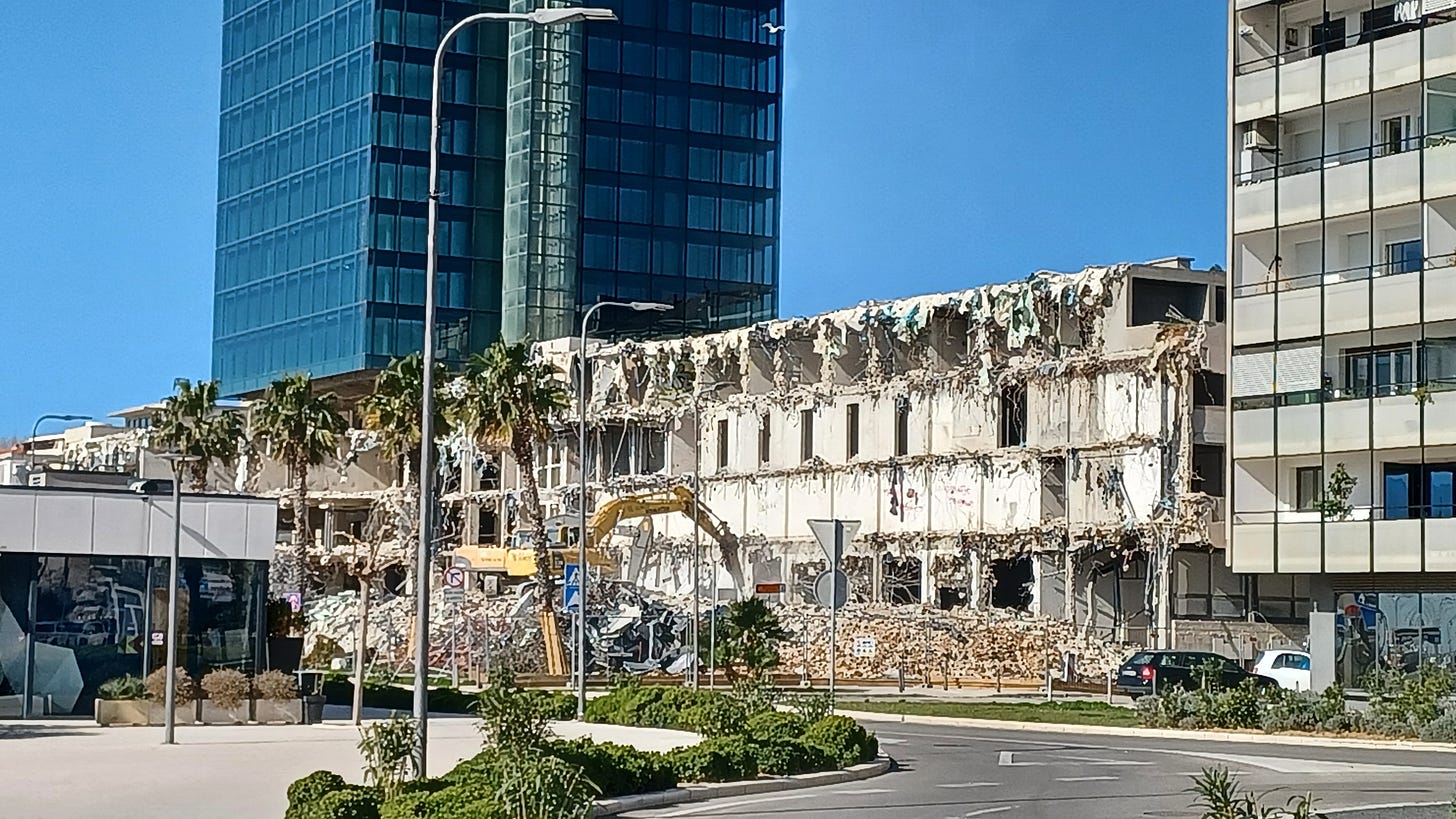
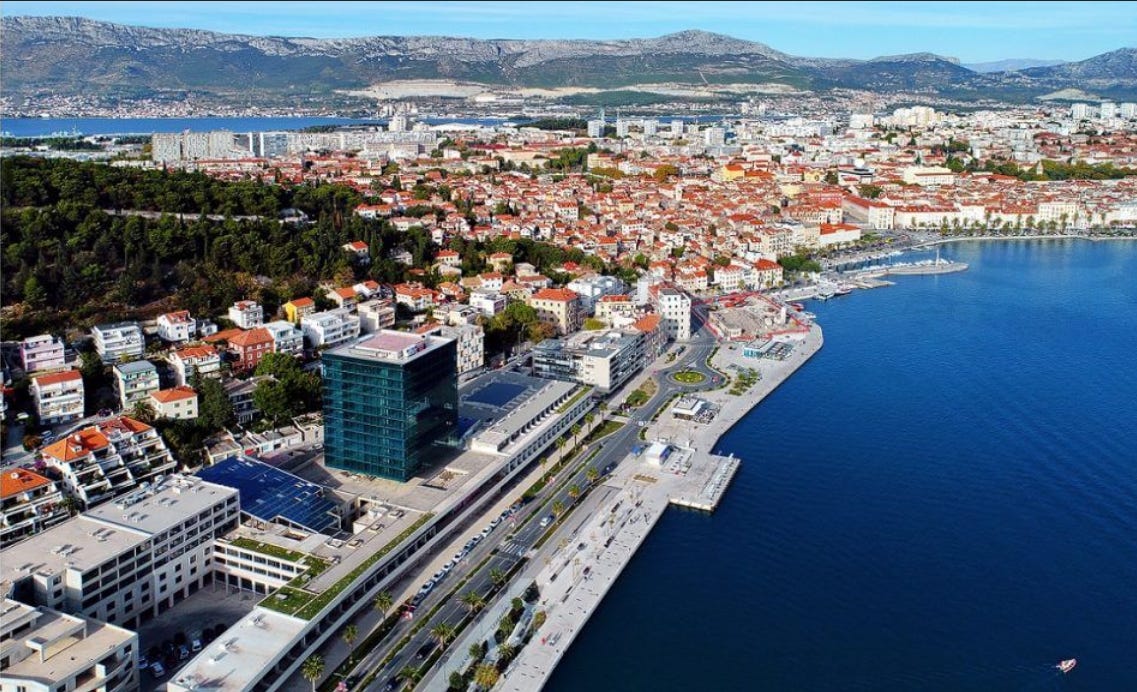
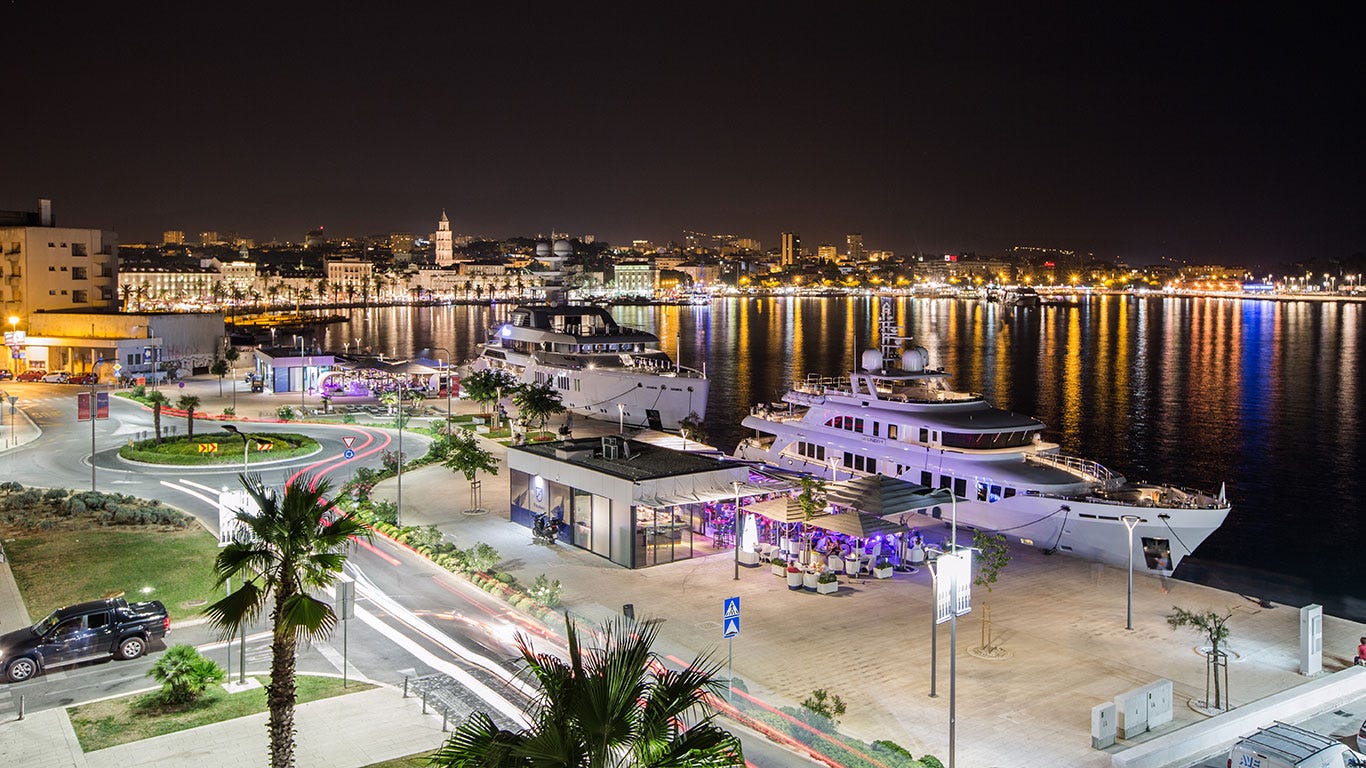
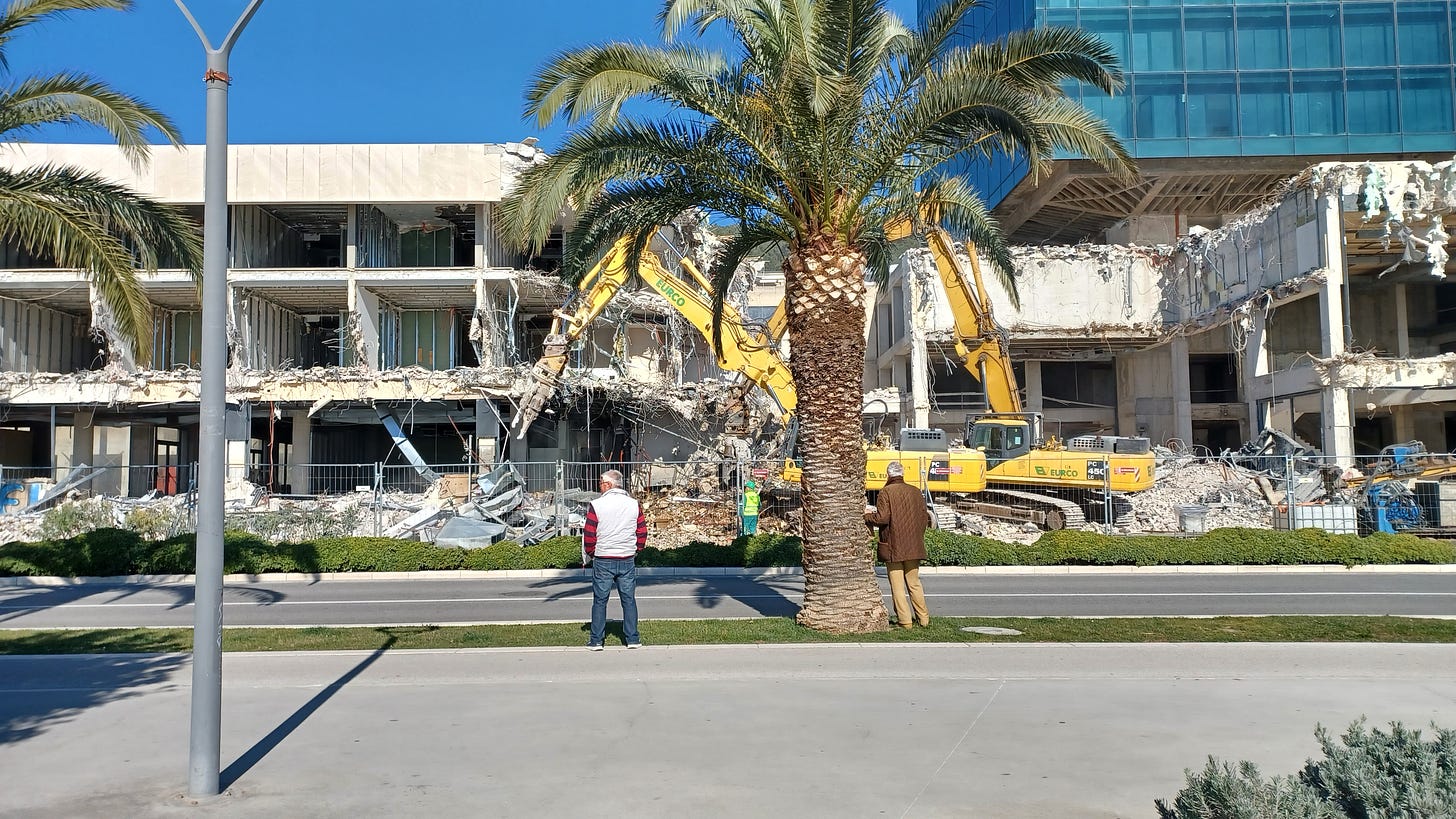
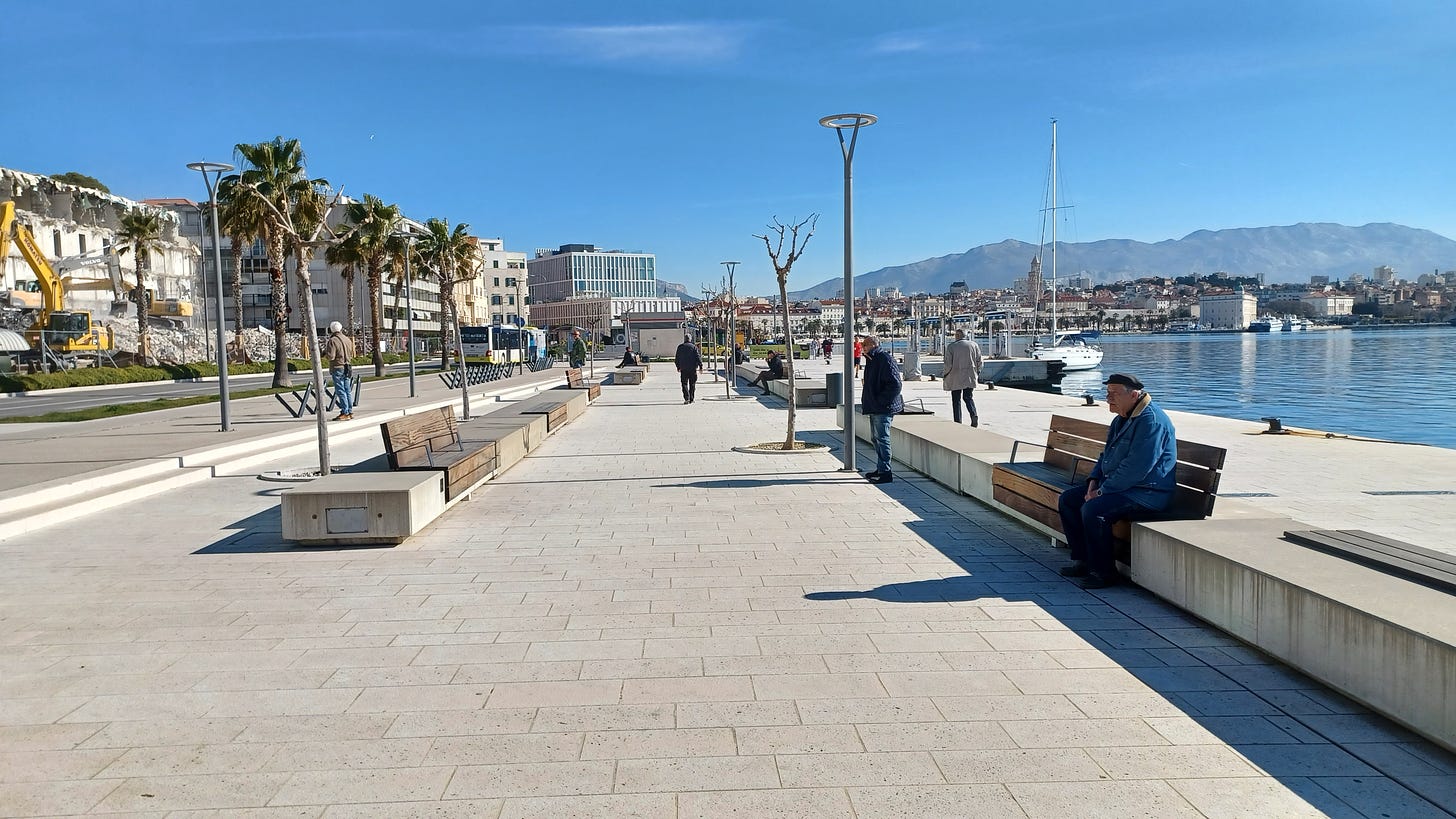
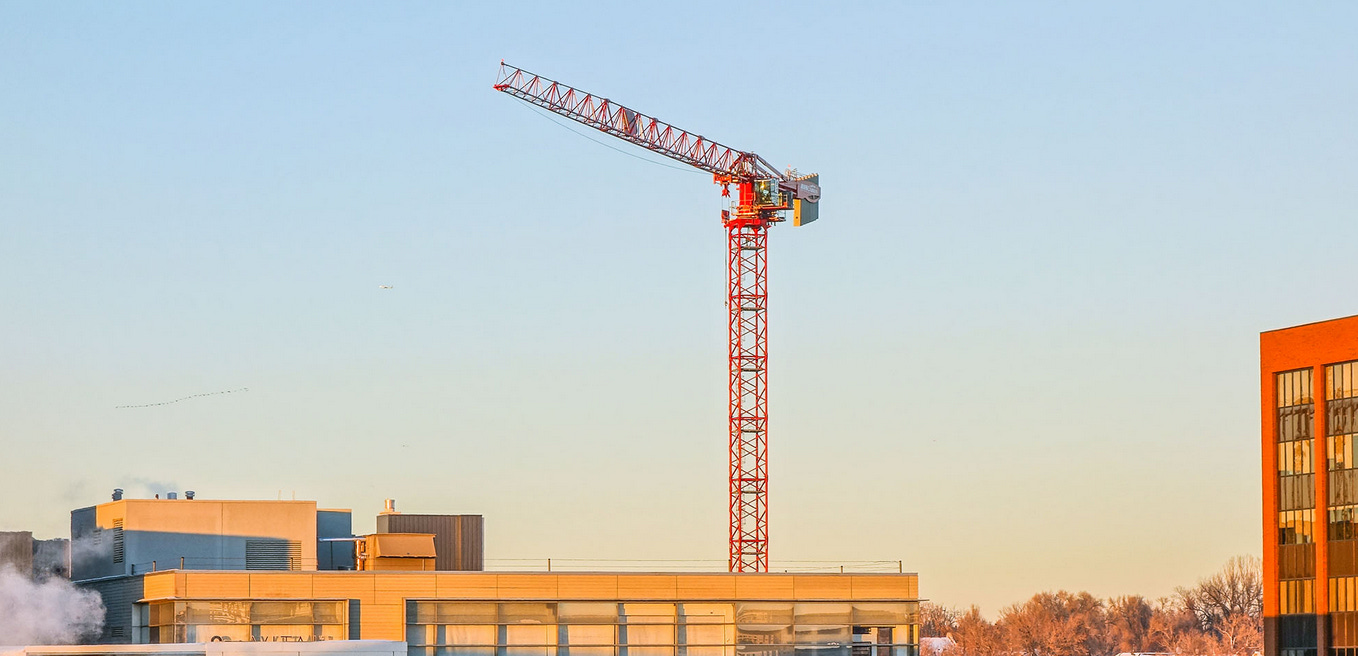
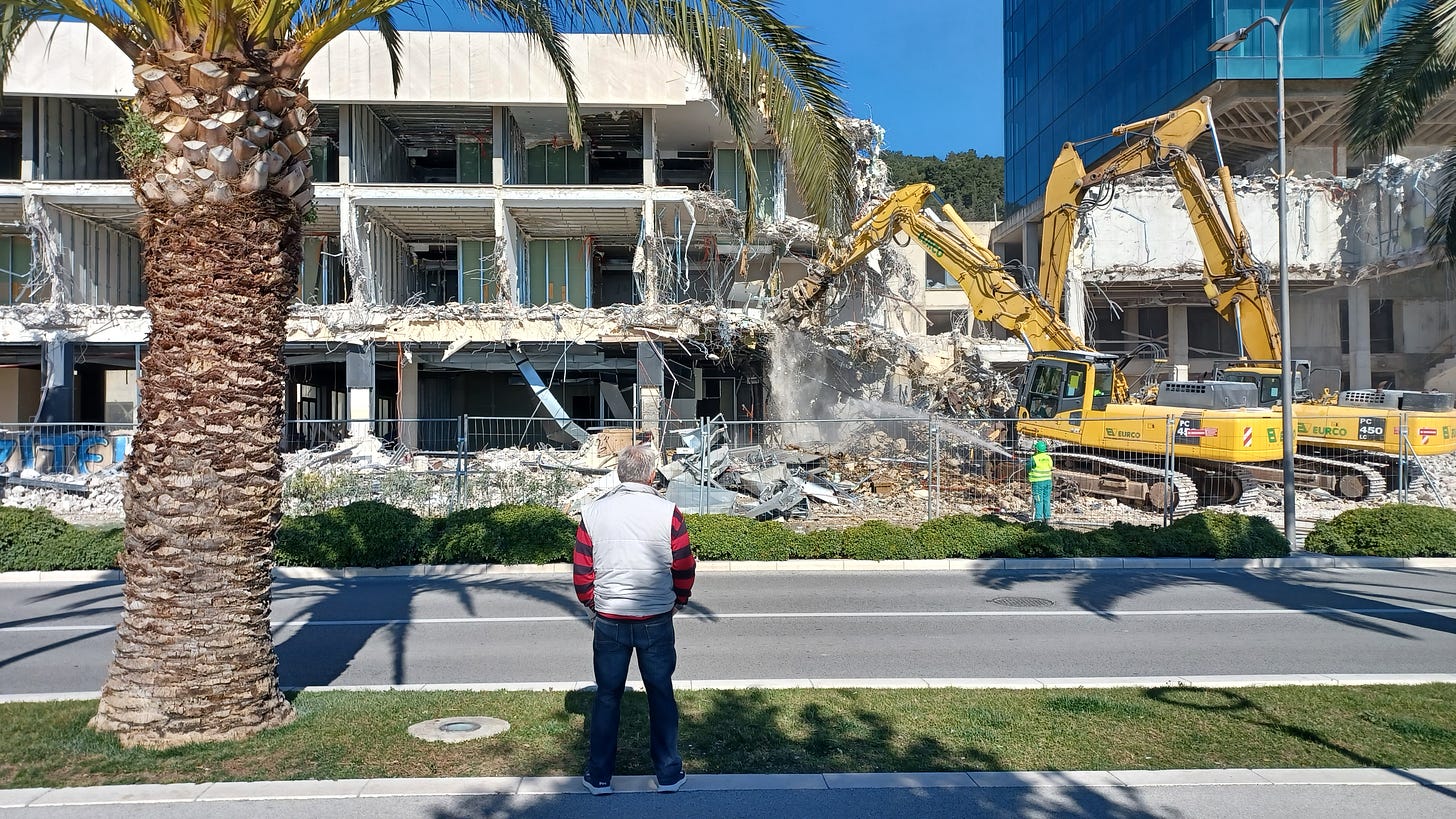
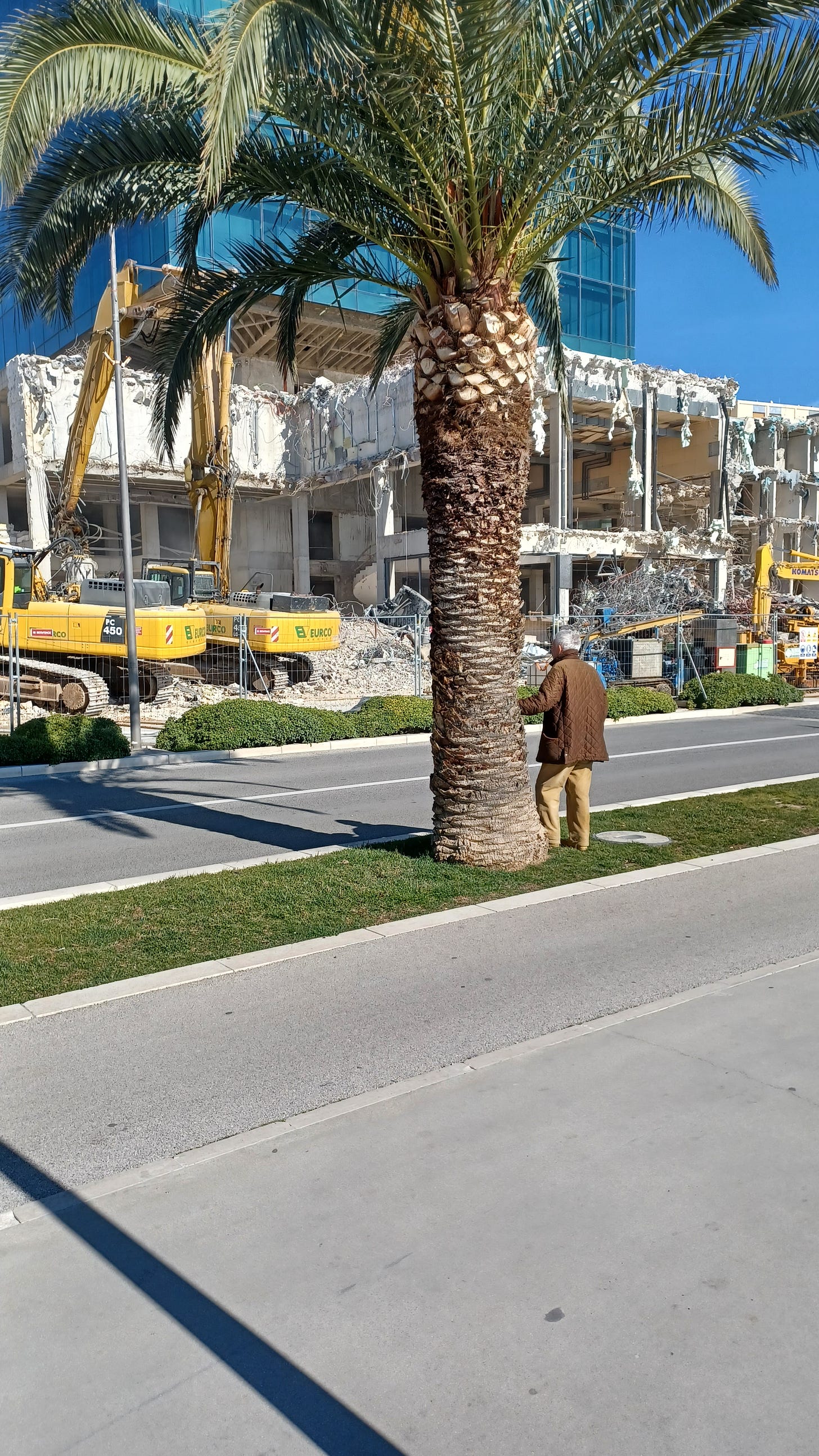
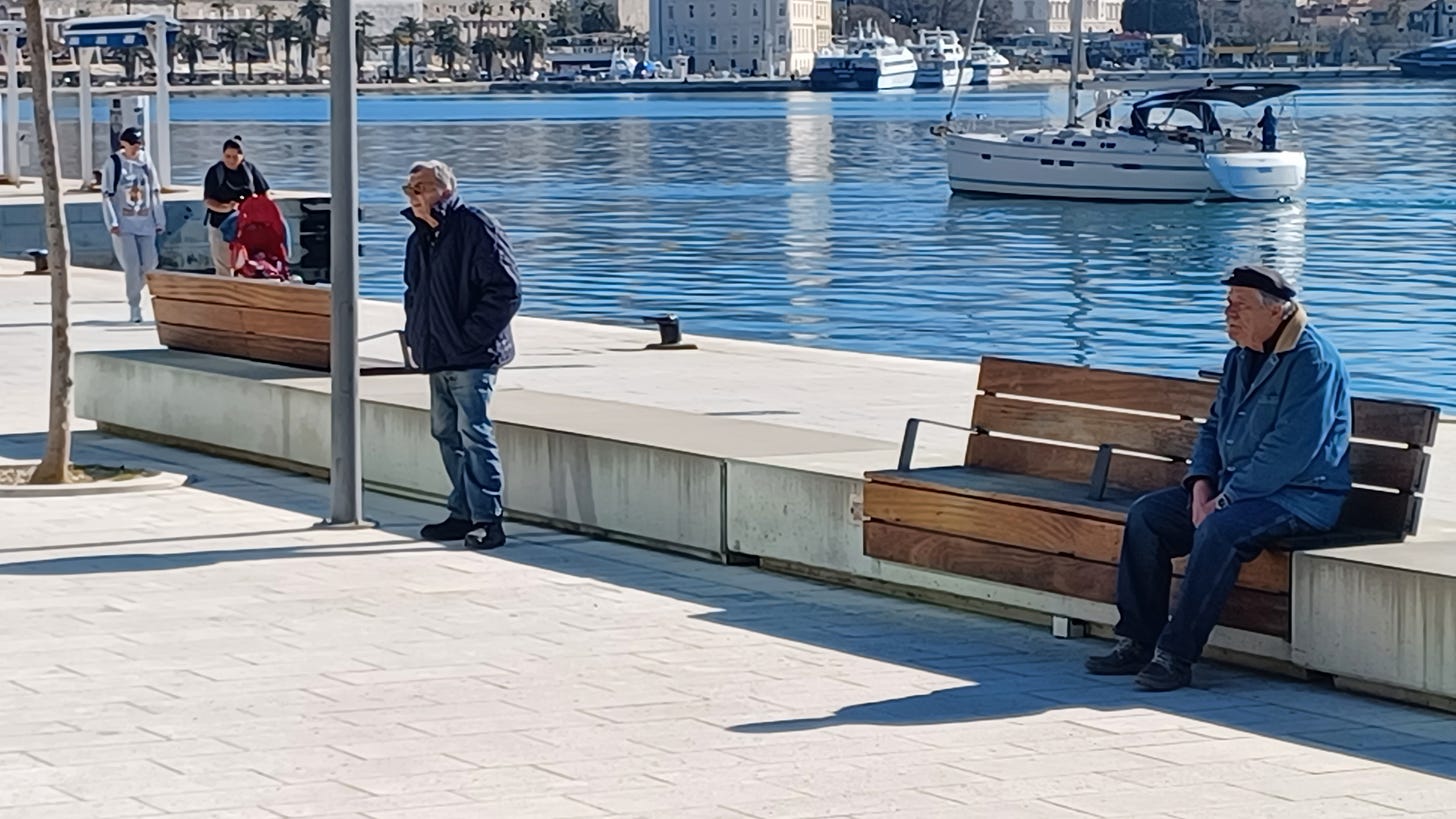
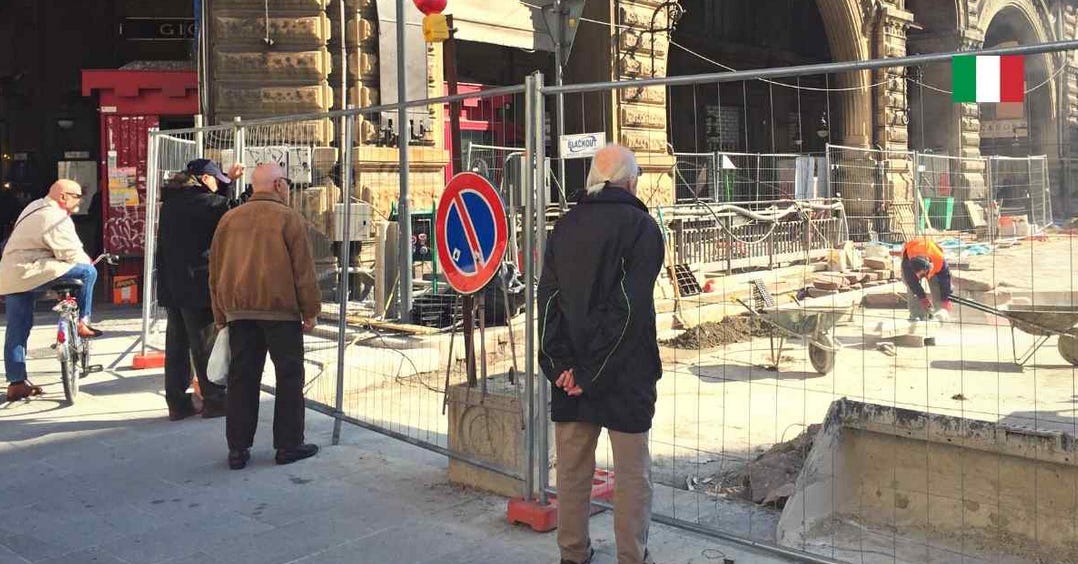
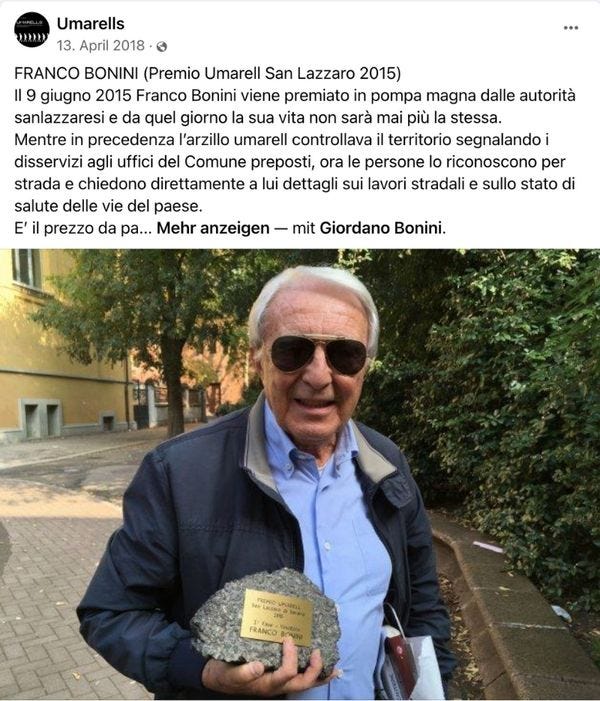
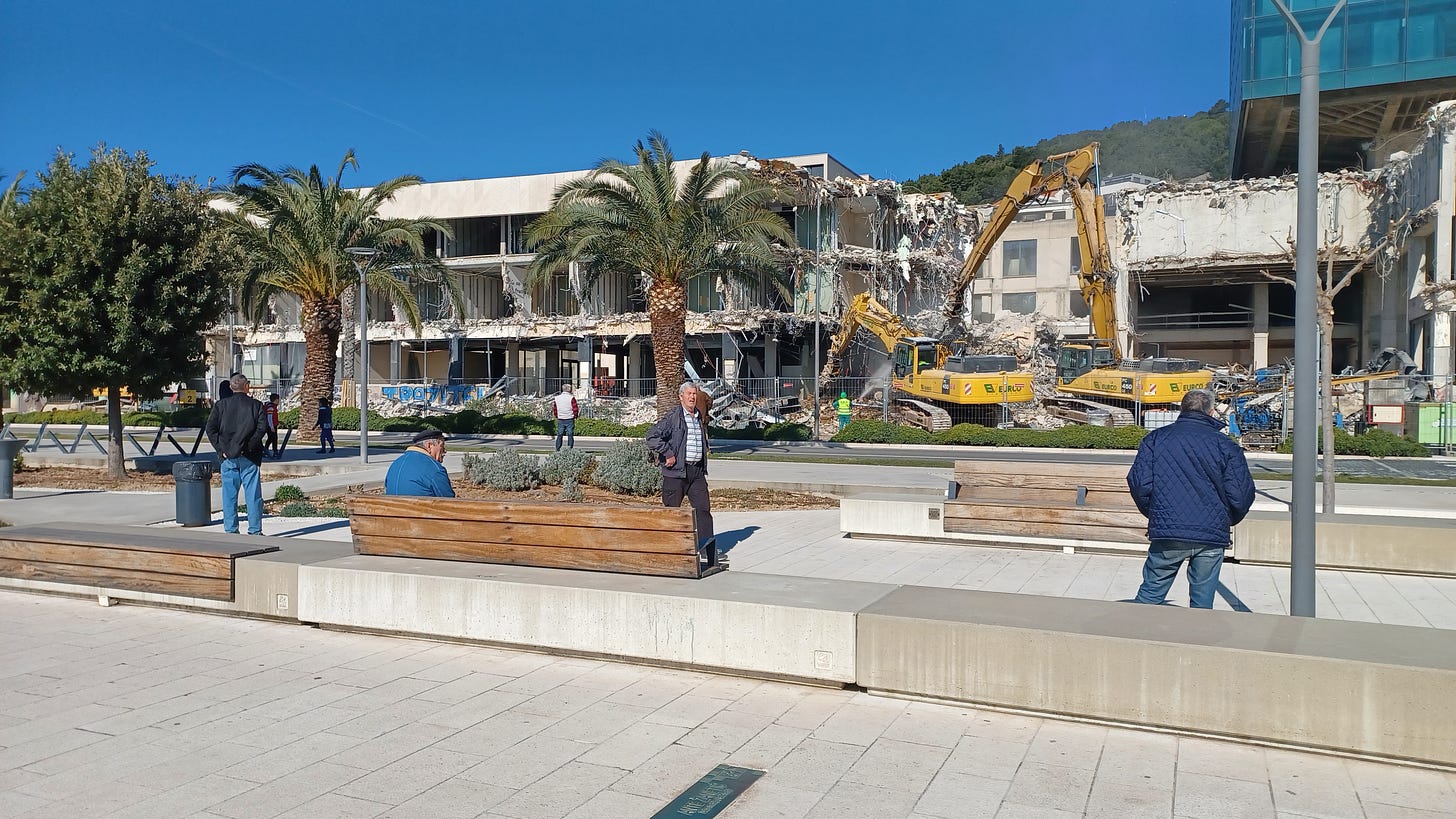
I hope I got the Italian right in the title of this photo essay.
Hit the like button up at the top of the page to like this post. Share it on social media by using the share button. Leave a comment if the mood strikes you to do so, and please consider subscribing if you haven't done so already.
It was a gorgeous day outside yesterday and I couldn't help myself.
Also: if you make it here to Split this year let me know in advance so that we can meet up.
I spent two days with two couples from California here this past week. Great time.